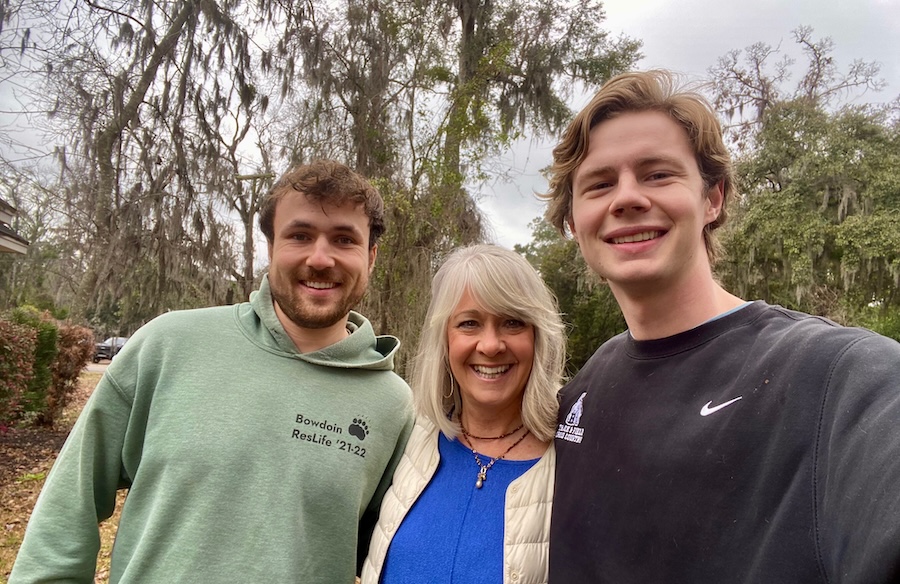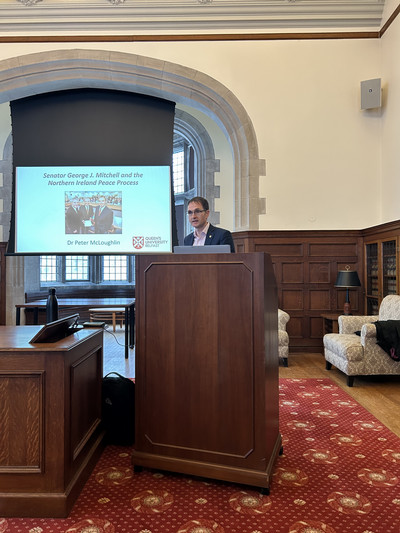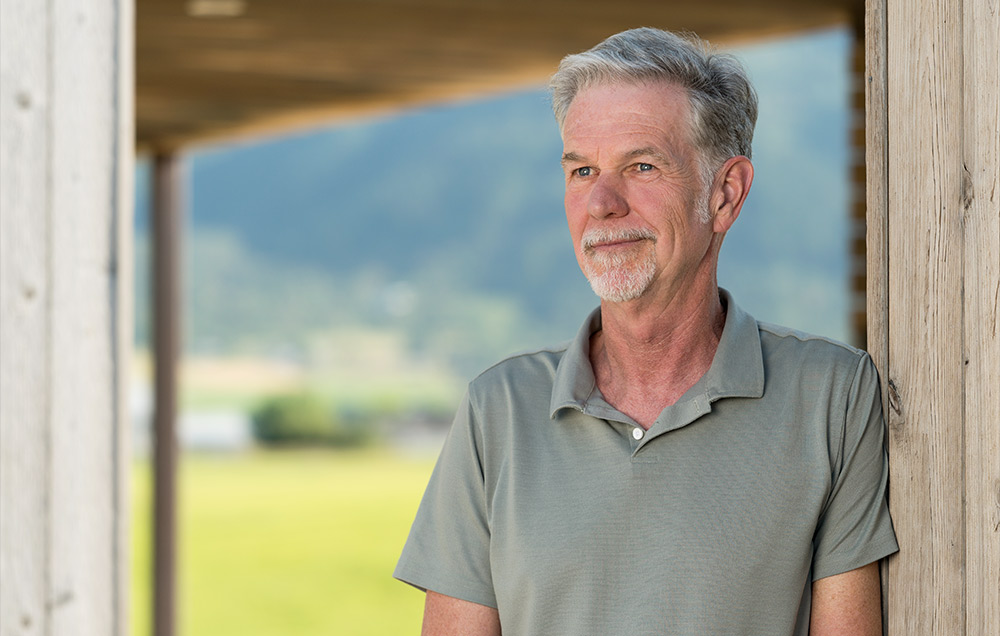Keeping Focus: Bowdoin Event Highlights Plight of Detained Journalist Evan Gershkovich '14
By Tom Porter. Photography by Fred J. Field“As we gather here this evening, it is the middle of the night in Moscow, where Evan is jailed at the notorious Lefortovo prison,” said President Safa Zaki in her introductory remarks.
She was addressing the crowded auditorium in Pickard Theater, Memorial Hall, where members of the Bowdoin community gathered on September 26, 2023, to remember jailed Wall Street Journal reporter Evan Gershkovich ’14 and to keep his plight “front and center.”
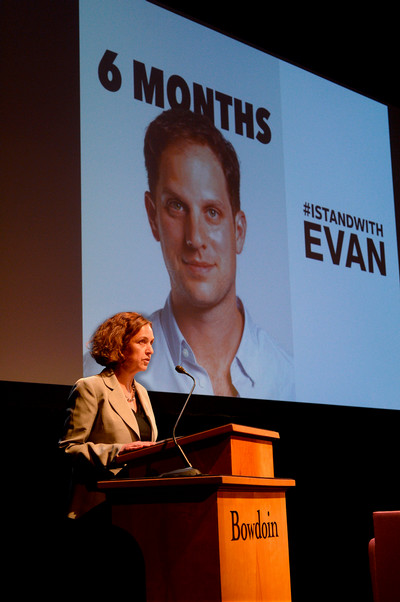
This week, Gershkovich will have spent 180 days behind bars in pretrial detention, facing unsubstantiated espionage charges. He was arrested in late March by Russian security officers while on assignment in the city of Yekaterinburg in the east of the country.
“What is happening to Evan is part of a pattern of criminalization of journalism,” said Zaki. “According to the Committee to Protect Journalists, as of their annual count last December, Evan is one of 363 journalists imprisoned in more than thirty countries.”
The event took the form of a conversation led by Professor of Government and Asian Studies Henry Laurence, a scholar of media and politics who has written extensively about press freedom. With him on stage was a three-person panel featuring editor and writer Linda Kinstler ’13, a college friend of Gershkovich’s, A. Leroy Greason Professor of English Brock Clarke, who became friends with Gershkovich after teaching him in his creative writing class, and Paul Beckett, Washington bureau chief of The Wall Street Journal, which Gershkovich joined in December 2021 as their Moscow correspondent, having worked in Russia since 2017. His previous employers include The Moscow Times and Agence France-Presse.
“Evan is one of a small band of reporters who dedicated their careers to covering Russia, and that wasn't always the popular choice,” said Beckett, himself a veteran foreign correspondent. “It took a special kind of... reporter to want to dedicate himself to writing about a country that until February 22nd of last year [the date Russia invaded Ukraine] wasn't squarely on the radar of American interests or American publications.” Having grown up in a Russian-speaking household with Soviet émigré parents, Gershkovich “was uniquely qualified to do that,” he added.
What made Gershkovich stand out as a foreign correspondent, added Beckett, was his affinity with the Russian people and love for the country, “which meant that he would go out and listen to Russian punk bands ... and play on Russian soccer teams, and it comes through in his reporting.” Beckett cited one particularly moving story by Gershkovich in which he spoke to Russian families burying the remains of loved ones who had died fighting in Ukraine. Beckett has never met Gershkovich, but said he now feels like he knows him. “I’m looking forward very much to meeting him when he comes home,” he said.
“I feel very lucky to know Evan both as a friend and as a journalistic colleague,” said Kinstler, an award-winning journalist who writes for The Economist, The Atlantic, and The New York Times, among other publications. She recalled her first encounter, as a student, with Gershkovich, whom she overheard on the Quad talking to his parents. “He was on his cellphone, and he was speaking in Russian, and immediately when he hung up I went up to him and we started talking.” Kinstler said they bonded over the fact that they both had parents who were Soviet immigrants to the US. “Realizing we had this shared background kind of meant that we understood each other very quickly, and it also helped that we were in kind of the same big group of friends here at Bowdoin and that he was one of our beloved writers for the Orient,” she added, referring to the student newspaper where they both worked.
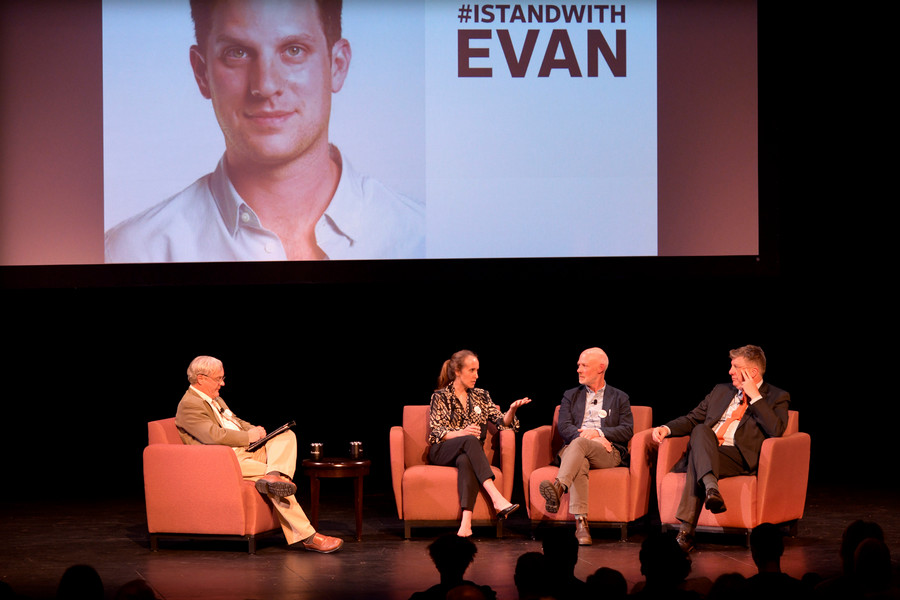
Clarke, an acclaimed novelist who teaches creative writing classes at Bowdoin, recalled meeting a patient and humorous student who was dedicated to the craft of writing. He told a story that, he said, “says a lot about what kind of person he was.” He was teaching Gershkovich in his creative fiction workshop, when he realized that “for way too long a time” he had been getting his name wrong, referring to him as Ethan instead of Evan. When Clarke asked him why he didn’t correct him, “he just smirked at me and said ‘I knew you’d get it right eventually,’ and that to me says a lot about the kind of person he is: He's got a good sense of humor and he's incredibly patient,” and this, added Clarke, came across in his student writing and in his journalism. “You could tell reading his work for the Journal where he's really patient with his subjects, he listens to them. He wants to hear what they have to say.
The discussion was followed by a question-and-answer session, where students asked panelists about a range of issues, including the challenges of reporting from places like Russia, global threats to the freedom of the press, and what more they could do to help Gershkovich, who faces an uncertain future after his latest appeal was turned down earlier this month. If convicted of the espionage charges, which the US government vehemently denies and for which the Russian authorities have presented no evidence, Gershkovich, we were told, faces up to twenty years in prison.
